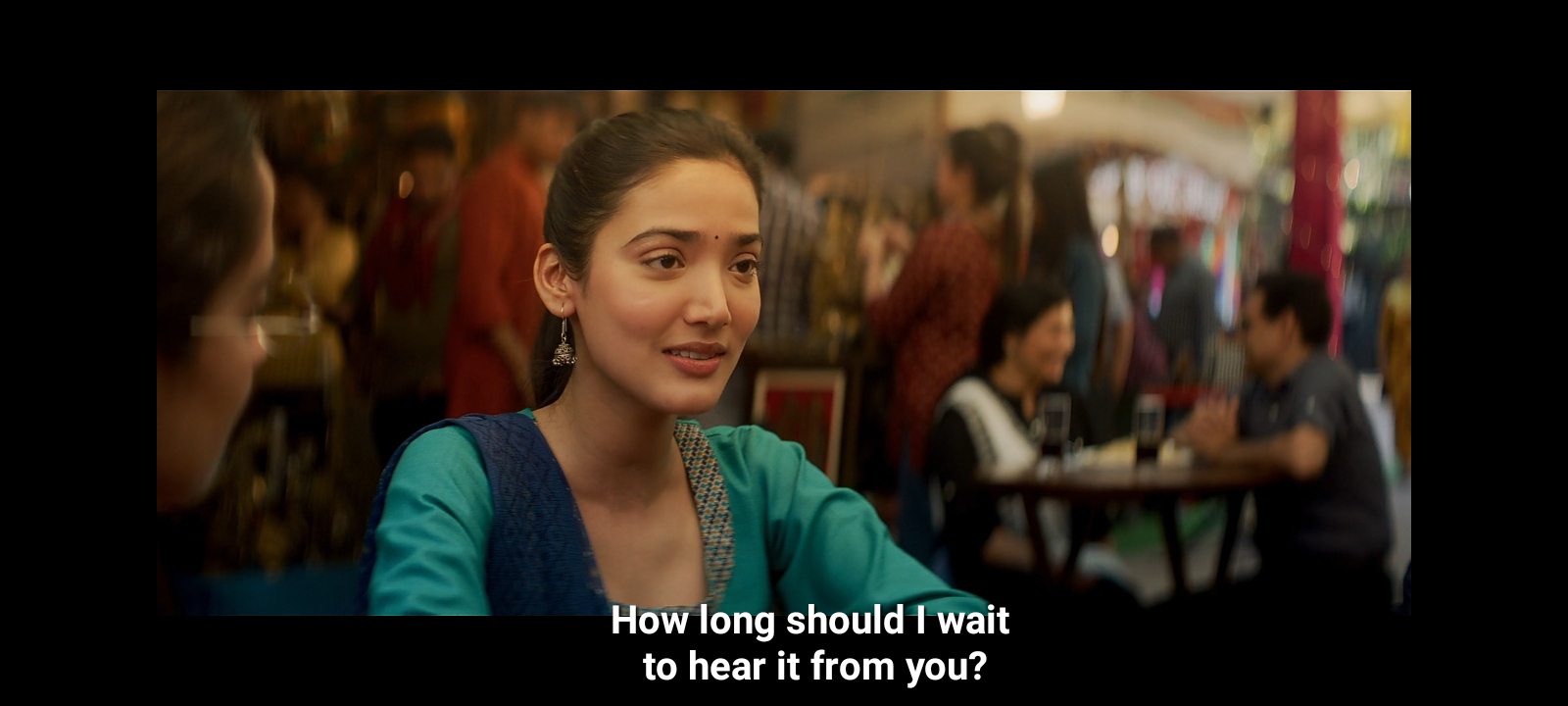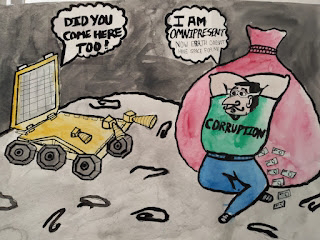Saturday, December 14, 2024
Exploring the Words of 2024: Brain Rot and Manifest
Sunday, August 11, 2024
Postcolonial Studies: Chimamanda Ngozi Adichie
Postcolonial Studies: Chimamanda Ngozi Adichie
Hello Everyone, 😊
This blog is part of a Sunday reading task assigned by Dilip Barad Sir. In this blog, we will explore the ideas presented in Chimamanda Ngozi Adichie's videos.
For more information check out teacher's blog: Click here
About Chimamanda Ngozi Adichie:
Chimamanda Ngozi Adichie, born on September 15, 1977, is a well-known Nigerian author recognized for her novels, short stories, and essays. She has gained international acclaim for works such as Purple Hibiscus (2003), Half of a Yellow Sun (2006), and Americanah (2013). In addition to these novels, Adichie has published a collection of short stories titled The Thing Around Your Neck (2009) and an influential essay, We Should All Be Feminists (2014).
Adichie's contributions to literature were recognized in 2008 when she received the prestigious MacArthur Genius Grant. The Times Literary Supplement has highlighted her as a leading figure among a new wave of English-speaking authors who are helping to draw a broader audience to African literature. Her most recent book, Dear Ijeawele, or a Feminist Manifesto in Fifteen Suggestions, was released in March 2017.
Video 1 :- Talk on importance of story/literature:
In this video, Chimamanda Ngozi Adichie shares insights about her life, childhood, and experiences growing up in Nigeria, focusing on how people perceive those with darker or chocolate-colored skin. She reflects on how her characters in her books are meant to convey deeper meanings, inspired by her interactions with others, including her best friend and a memorable reader. Adichie also discusses her experiences as a Nigerian woman in America, highlighting the stereotypes and assumptions she faced.
One of the central themes she discusses is the danger of a "single story," where people are reduced to simple and often harmful stereotypes because only one narrative about them is known. Adichie shares how her understanding of literature changed when she discovered African authors like Chinua Achebe and Camara Laye. These writers showed her that stories could reflect her own life, leading her to reject the idea that literature should only represent a narrow perspective.
Adichie uses personal stories to illustrate her points. She recalls how her American roommate made assumptions about her based on stereotypes about Africans, expecting her to have had a difficult life simply because of her background. She also shares her experience visiting Mexico, where she realized that her own views of Mexicans had been influenced by negative portrayals in U.S. media. Through these examples, Adichie highlights how easy it is to fall into the trap of believing a single story and the importance of recognizing the full complexity of people's lives.
Another key idea in Adichie's talk is the power of storytelling. She explains that those who control the narrative hold the power to shape how others are seen, and when this power is concentrated in the hands of a few, it can create a distorted view of reality. Adichie’s message is especially important in today’s globalized world, where stories from different cultures are shared widely through media and literature.
Adichie also touches on how African people have been portrayed in literature, noting how writers like John Locke and Rudyard Kipling have dehumanized Africans, depicting them as wild and uncivilized. These portrayals have contributed to a harmful single story about African people. However, Adichie stresses the importance of a more balanced narrative, as shown by Chinua Achebe, to ensure that multiple perspectives are represented.
In her own writing, Adichie has made it her mission to express her story, her environment, and her identity. She questions the absence of people like her in the literary world and emphasizes the need for representation. Through her work, she challenges the single story and advocates for a richer, more diverse understanding of the world.
Personally, I found this talk thought-provoking, as it introduced me to issues I hadn't considered before. Adichie’s ideas about the power of stories and the importance of hearing different perspectives resonate with me, showing how crucial it is to understand and empathize with others in our diverse world.
Video 2 :- We Should All be Feminist:
Adichie shares her personal journey from initially rejecting the idea of being a feminist to fully embracing the label. She recalls a moment when her friend Okuloma called her a feminist, a term she wasn't comfortable with at first. Adichie delves into the misconceptions surrounding feminism, particularly in African and Nigerian cultures, where it’s often viewed as "un-African" or associated with negative stereotypes, like being unhappy or struggling to find a husband. Despite these stereotypes, she embraces the term with a sense of humor, referring to herself as a "happy African feminist."
Throughout her talk, Adichie highlights the deep-seated gender inequality in society through her own experiences. For example, she recalls how, even though she had the highest test score in elementary school, she wasn’t allowed to be the class monitor because she was a girl. She also mentions how men are often regarded as more important, sharing a story where a man thanked her male friend after she gave him money, completely ignoring her contribution.
Adichie provides a strong critique of how gender norms are created and maintained, especially in Nigeria and Africa. She advocates for a more equal society where gender doesn’t limit anyone’s opportunities and challenges traditional beliefs that restrict both men and women. She argues that we need to rethink how we raise both boys and girls.
Her call to "raise our sons differently" and "raise our daughters differently" emphasizes the need for change in how young people are brought up. By addressing the expectations placed on both boys and girls, Adichie envisions a world where people can be true to themselves without being confined by traditional gender roles. She believes that feminism isn’t just about women fighting for their rights, but about building a society where everyone, regardless of gender, can live authentically and equally.
Video 3 :- Talk on importance of Truth in Post-Truth Era:
In this video, Adichie passionately discusses the importance of truth, urging us to treat literature as a guiding principle, almost like a religion. She believes that students, especially those at prestigious institutions like Harvard, have the power to influence the world around them. With that power comes the responsibility to stand up for the truth.
Adichie stresses that in a world where lies are common, it’s essential to hold on to the truth, no matter what. She openly admits that she doesn’t have all the answers, even about Harvard, and encourages people to be comfortable saying, "I don't know." To her, Harvard represents a form of intellectual elitism that she encourages challenging.
She also talks about the importance of trying new things and not giving up, even if it means taking a different path than what is expected. She highlights two key ideas: "self-doubt" and "self-belief." According to Adichie, these are essential for staying true to ourselves, questioning what’s false, and holding firm in our beliefs.
Adichie points out that while being honest doesn’t always lead to success, it does bring personal satisfaction and dignity. She shares her own experiences, acknowledging that her early work wasn’t perfect, which motivated her to improve and eventually succeed. She advises graduates to become leaders who value integrity and truth.
She also emphasizes how literature can help us understand others and the world more deeply. By reading widely, we can develop empathy and make better decisions. Adichie recognizes that speaking the truth can be challenging, especially in difficult times like political debates, but she urges graduates to have the courage to do so, even when it’s unpopular.
Finally, Adichie opens up about her struggles with anxiety and procrastination, showing that both doubt and belief play important roles in achieving success. She encourages people to embrace their unique paths and to rethink traditional notions of what it means to be successful.
Thank you...
Sunday, July 7, 2024
Socrates: Life & Trial
Socrates: Life & Trial
Who is Socrates ?
My Understanding & analysis :

Wednesday, January 17, 2024
12th Fail Movie review and Comparative Study
Sunday, November 19, 2023
Youth Festival 2023
Sunday, September 17, 2023
Post Truth
Hello learners,
Introduction :
What Is Post-Truth?
Examples of Post-Truth:
Some images and videos about Post-truth :
Why Is This a Problem?
Implications of Post-Truth:
How Can We Navigate Post-Truth?
In sum up :
Citation :
Sunday, August 20, 2023
Imagination : A Photography Workshop
Imagination : An Art of Seeing
Hello everyone,
Meaning of the photography :
Some Informative points :
- Aesthetic of photography
- Learn how to see
- Central Rule
- Leading Lines
- Head/Leading Room
- Depth of Field
- Break the Rule
Some photographs for example :
Thank you 🙏
Assignment: 208: Comparative Literature & Translation Studies
Reimagining Literary History Through a Translating Consciousness: A Critical Reading of G. N. Devy’s “Translation and Literary History: An...
.jpg)
-
Are AI Tools Dismantling Citation Ethics in Academia? Hello , This blog is a part of an assignment of the Research Methodology. In this bl...
-
Reimagining Literary History Through a Translating Consciousness: A Critical Reading of G. N. Devy’s “Translation and Literary History: An...
-
"Since There's No Help," Hello Readers... Welcome to this blog in this blog we are going to analyse the poem "Since the...
































.jpg)
.jpg)